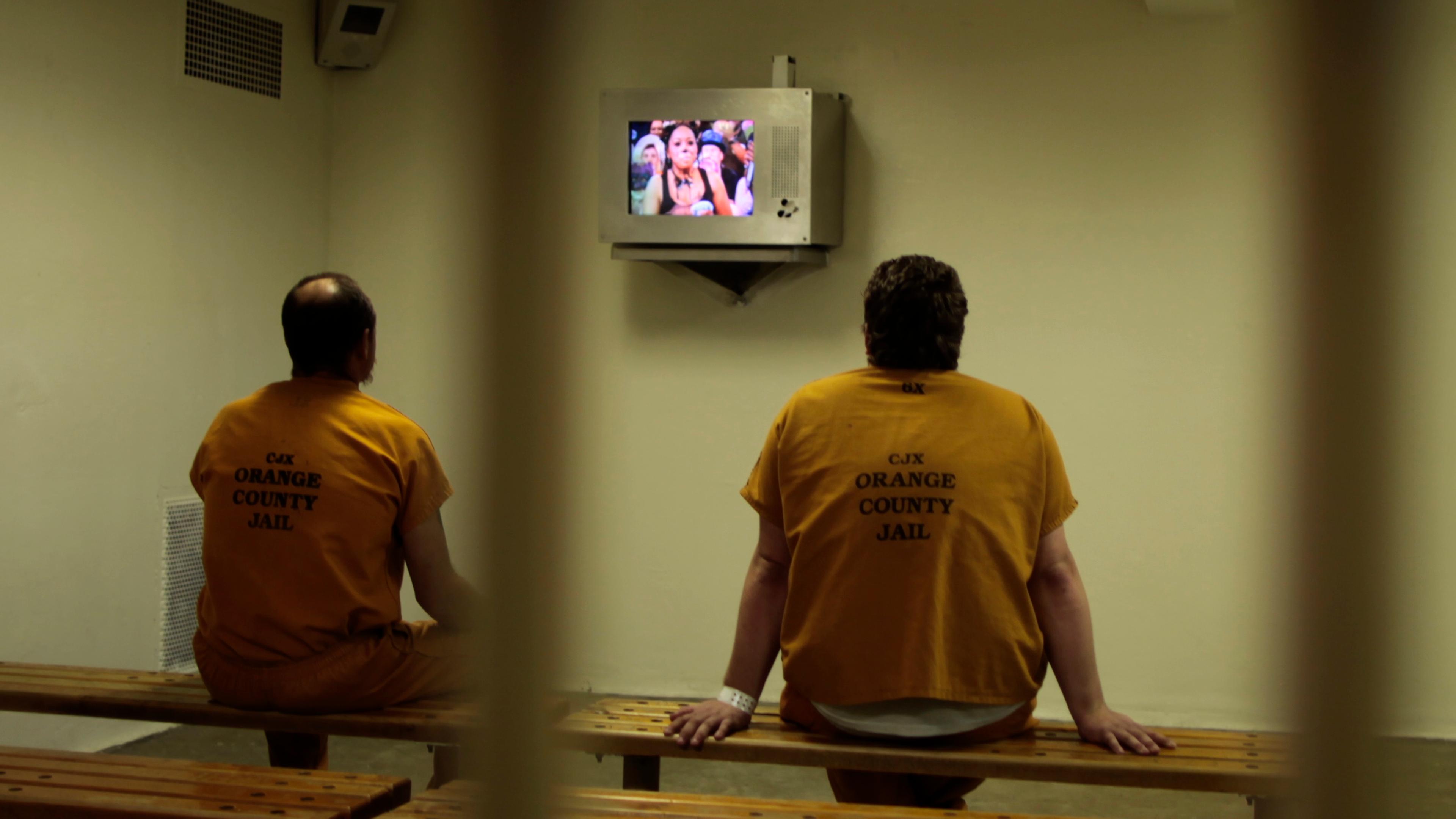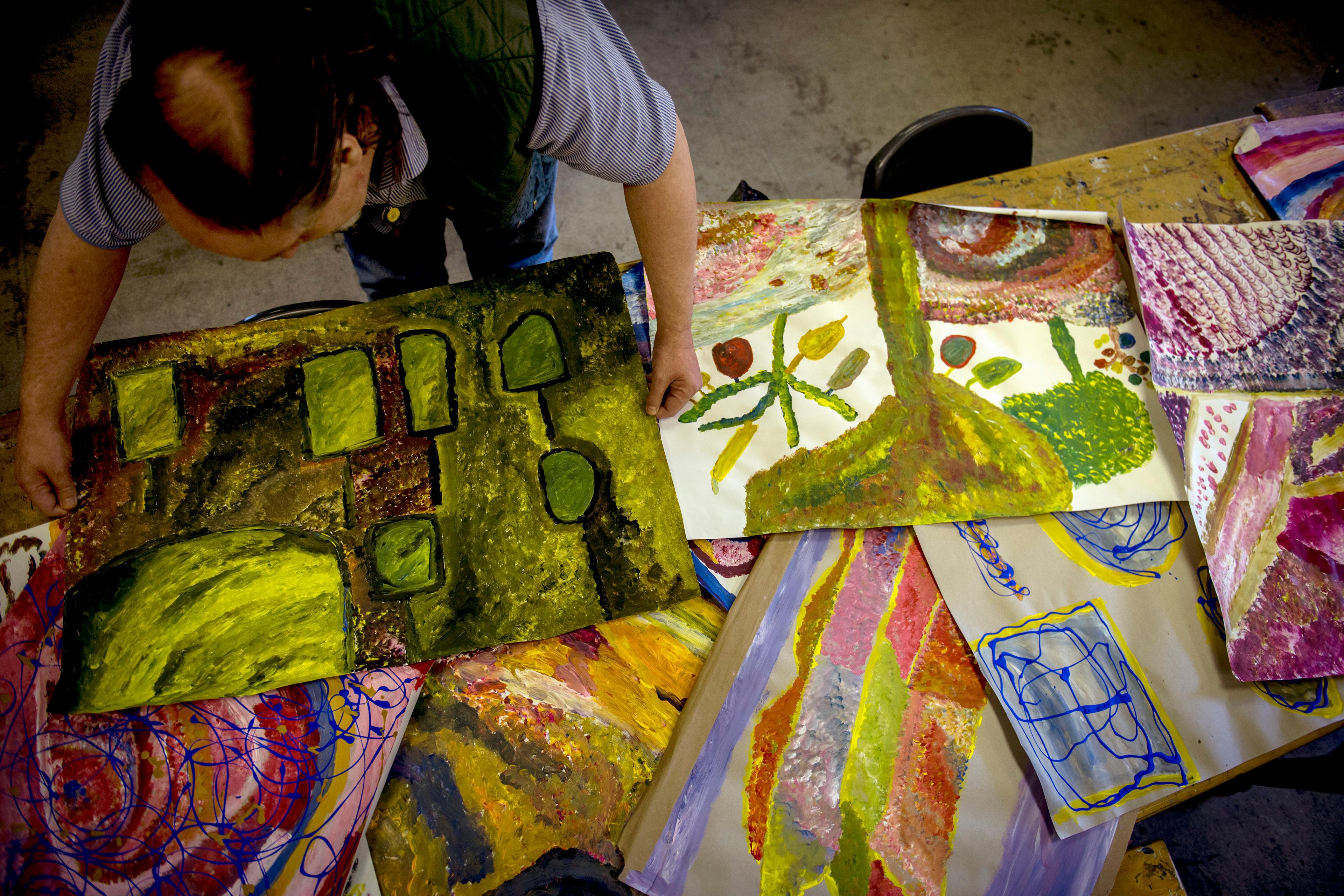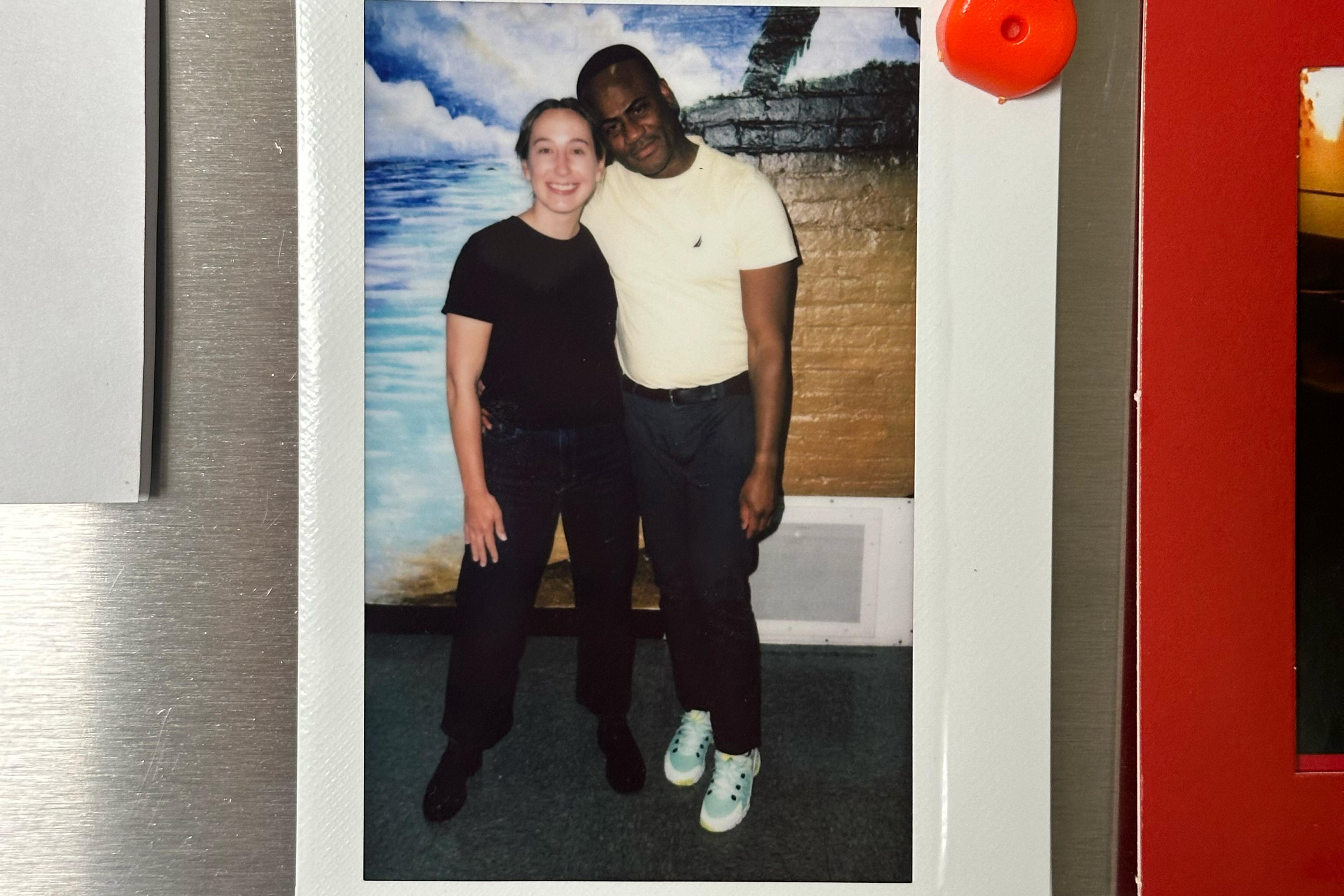In everyday life, losing track of time often signals enjoyment and liberation from the clock and calendar. While on vacation, for instance, you may not know (or care) what day it is. People can also lose track of time when engaged in a challenging but enjoyable activity, such as surfing or composing music. Yet, in concussion assessment protocols, not knowing the time of day can indicate damage to one’s brain, and questions about the date are used in the clinical diagnosis of dementia. Due to the cultural standardisation of our temporality, losing track of time – for positive or negative reasons – is an abnormal experience for most people.
Among prisoners, in contrast, losing track of time is characteristic of temporal experience. They quickly learn that this distortion in the perception of time is endemic during their captivity due to an unchanging environment and the sameness of each day.
Stimulus deprivation is a standard feature of incarceration. In his prison memoir From the Inside (2003), Robert Berger laments:
I wake up in the same room every day, put on the same colour clothes, eat at the same table in the mess hall with the same people, walk in the same compound and look at the same scenery day in and day out, year after year.
In her memoir Orange Is the New Black (2010), Piper Kerman corroborates the problematic connection between temporal experience and the unrelenting emptiness of maximum lockdown:
It was easy to lose track of what day it was – there were no newspapers, no magazines, no mail, and since I avoided the TV rooms, no significant way to tell one day from the next … there were no clear windows, so I couldn’t even watch the progression of the sun.
If convicts attempt to ‘solve’ the problem by keeping track of standard time using clocks and calendars, they succeed only in sensitising themselves to the fact that nothing is happening and, in prison (as in everyday life), this makes for the excruciating experience of protracted duration – that is, the perception that time is passing very slowly.
Prisons are tantamount to a vast diabolical experiment on how brutality and boredom condition temporality. The many ways that people suffer time within the context of involuntary confinement have important implications for our understanding of how human beings, always and everywhere, perceive the passage of time and strive to manage their temporal experience. Ironically, then, there is a timeless quality to our investigation of temporality among prison inmates. In fact, far from being unrepresentative and irrelevant, their extreme circumstances provide insight into diverse dimensions of time, making more apparent essential – but often obscured – features of human temporal experience.
Intervals of time that are empty of change and activity are experienced as slow in passing but, with little or nothing to remember, they soon evaporate in memory and seem to have passed quickly. This paradoxical dynamic operates inside and outside of prison, but it is greatly exacerbated by the relentless tedium of incarceration. ‘Time crawled through this desert of uneventfulness as though lame in both feet,’ recalls Arthur Koestler in his autobiographical account of solitary confinement, Dialogue with Death (1937). In hindsight, however, he is astonished to find that ‘these interminable hours, days and weeks passed more swiftly than a period of times has ever passed for me before…’ Among prisoners, then, losing track of time might be almost functional, insofar as it condenses the unpleasant memory of suffering through long stretches of empty time.
However, this functionality is offset by disorientation and resulting anxiety when one loses track of time. Prisoners and non-prisoners alike have been socialised into the standardisation of time since childhood, and, even many years later, that process leaves us feeling quite uncomfortable when we do not know what time it is. Intuitively, we realise that losing track of time desynchronises us and impedes our ability to coordinate our actions with others. This disorientation became apparent when many of us lost track of time during the blurred days of social isolation occasioned by the COVID-19 pandemic, and it is clear that people found the resulting distortion in temporal experience profoundly unsettling. Online memes created during the period of social isolation lament too much eating, too much drinking, and disastrous experiments with our appearance – much of it in an effort to fill undifferentiated intervals of time.
More than most people, prisoners are beset by temporal quandaries. They must traverse a huge expanse of unstructured time, and there are few distractions with which they can occupy themselves. Like most people, they are reluctant to lose track of time, but attention to clocks and calendars will only stretch the perceived length of their sentences. Thus, prisoners engage in what I call ‘time work’ by crafting personal or collective efforts to modify their own temporal experience.
Before I embarked on this study of temporality in prison, my research concerned how the perceived passage of time is shaped by one’s circumstances. Yet the data revealed that people often provoke or cultivate desirable forms of temporal experience and suppress or minimise undesirable forms of temporal experience. For example, one might engage in a distracting activity in order to make time seem to pass more quickly, or try to slow down and concentrate on details of the present moment to make it last longer. Conceptualising such tactics as time work, I showed that we are architects as well as victims of time – which, as it turns out, is also true behind bars.
Desperately, ingeniously, they formulate personal routines with which to fill empty intervals
Prisoners develop characteristic methods for marking time as an adaptation to their circumstances. Given that the available resources for time reckoning are so meagre, they take advantage of the rhythms and procedures of the temporal regime. Correctional officers impose a strict schedule on convicts, including meals, recreation, overnight lockdown and so forth. This invariant timetable structures temporal experience for prisoners. In his autobiography You Got Nothing Coming (2002), Jimmy Lerner recalls:
There are no windows in my cell, and of course they took my watch, but I can estimate the time by the food trays. Three times a day an unseen hand shoves a plastic tray through a slot in the bottom of the solid steel door.
His time in ‘Suicide Watch Cell No 3’ is a featureless terrain, aside from the contents of each tray:
If it’s a handful of Rice Krispies and a dented orange (invariably encrusted with a thick white mould), then it must be breakfast time … Peanut butter and jelly means it’s about noon, and macaroni and cheese must signify Happy Hour here on the nut wing of the Las Vegas county jail.
Correctional officers also count prisoners several times each day, and this security procedure creates temporal structure. Each count brings all activity in the penitentiary to a halt, as Kerman describes:
The five of us stood silent by our bunks, waiting. The entire building was suddenly quiet; all I could hear was the jangling of keys and the thud of heavy boots. Eventually a man stuck his head into the room and… counted us. Then, several seconds later, another man came in and counted us.
This happens multiple times every day and, when the count is wrong, the whole process is repeated until they get it right. Likewise, prisoners are released from their cells for showers, talking on the telephone, shopping at the canteen, or ‘yard’ (ie, recreation) according to an invariant schedule, thereby producing a circular system of time reckoning where a linear sequence of specific dates is largely irrelevant.
The temporal regime provides a skeletal structure for time reckoning but, each day, the vast majority of prisoners still confront a daunting stretch of unscheduled hours. Desperately, ingeniously, they formulate personal routines with which to fill these otherwise empty intervals.
In her memoir Stolen Time (2007), Sunny Jacobs exemplifies the self-conscious intent of this strategy:
I created a routine for myself. It helped to overcome the feeling of being detached, of free-floating in the absence of a time structure.
Awakened by the ‘smell and sounds of breakfast’, she would ‘wait by the door with my face pressed sideways to the 5” x 5” square of safety glass criss-crossed with wire’. Once the guard arrived with the breakfast cart, she would exercise, eat, and then go back to sleep (another tactic for shortening the perceived length of one’s sentence). The rest of her morning would be devoted to yoga, prayer, and meditation. ‘Lunch was another marker in the passage of timelessness,’ Jacobs writes, after which she ‘would write or draw or do maths problems in my head or think about my children, Jesse, my family and cry.’ These practices bring her to another meal, but one that is merely followed by relentless repetition.
Throughout captivity their success is fleeting; they may win battles, but they lose the time war
With inventiveness born of necessity, prisoners try to distract themselves from the excruciating march of time. They mould chess pieces from toilet paper and toothpaste; they carve dice for backgammon from paracetamol tablets. Or, as Albert Woodfox observes in his autobiography Solitary (2019), they endeavour to interrupt the dreadful sameness of each day by improvising a bit of novelty:
I tried to make the routine different. I might sit on my bunk to eat breakfast for months or maybe a year. Then I’d stand to eat breakfast for months. Then I’d sit at the table to eat breakfast. Deep down I always knew it was the same routine. I couldn’t really trick myself into believing otherwise.
Where such options are available, convicts also attempt the long-term acceleration or differentiation of temporal experience by means of exercise and hobby activities, as well as (frequently cynical) participation in religious, educational or therapeutic programmes. Despite creativity and diligence, however, such efforts are akin to the struggles of someone drowning in an ocean of time.
Incarceration is fascinating because, at the heart of it, there is something essential to the human condition: an existential struggle to enjoy one’s life even within the most harsh and hostile circumstances. Prisoners are obsessively engaged in time work because, here and there, now and then, they are able to modify their temporal experience in desirable ways. Yet we must not overstate this capacity, for throughout captivity their success is always localised and fleeting; they may win battles, but they lose the time war.
Outside of prison, time work is ubiquitous and more successful, as a rule, because people have the resources (especially temporal autonomy) with which to enact it. Nonetheless, we should not exaggerate our own ability to alter temporal experience, either. I accede to the temporal regime by arriving for class punctually, even if I resist the temporal regime by not attending a faculty meeting, thereby stealing a bit of time for my research. Everyone must negotiate the contested terrain between temporal structure and temporal agency. And like prisoners, we win some and we lose some.








